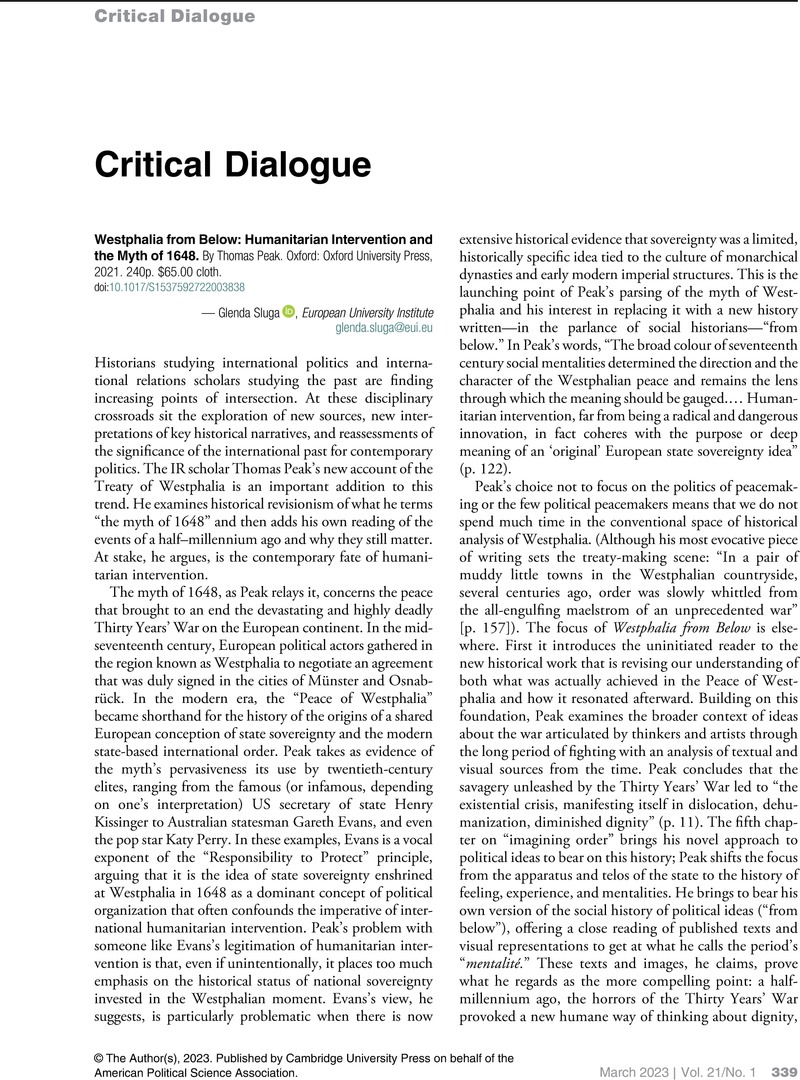No CrossRef data available.
Article contents
Response to Thomas Peak’s Review of The Invention of International Order: Remaking Europe after Napoleon
Published online by Cambridge University Press: 24 March 2023
Abstract
An abstract is not available for this content so a preview has been provided. Please use the Get access link above for information on how to access this content.

- Type
- Critical Dialogue
- Information
- Perspectives on Politics , Volume 21 , Issue 1: Special Section: Las Américas , March 2023 , pp. 343
- Copyright
- © The Author(s), 2023. Published by Cambridge University Press on behalf of the American Political Science Association


